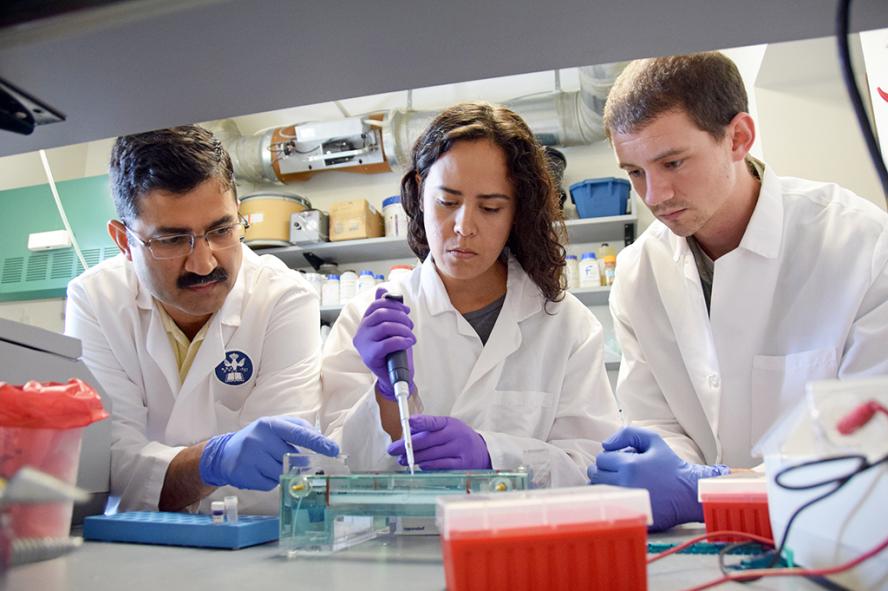-
About
- Leadership & Faculty
- News & Events
-
Academics
- Graduate
- Advanced Clinical Training
- Continuing Education
-
Student Life
-
Research
-
Hospitals & Clinics
- Emergency Care
- Hospital Services
-
Community Outreach
- Volunteer
How Many People Have Been Infected?
Associate professor Abhineet Sheoran explains why widespread antibody testing is so critical to moving forward in a COVID-19 world.

Like most of us, the faculty and researchers at Cummings School have watched the COVID-19 pandemic develop and spread with a mixture of concern and curiosity.
While none of them were surprised to see a new virus spill over from animals to people, they still have lots of questions about how it’s infecting and affecting people worldwide—and what it will take to bring the U.S. and international outbreak under control.
We asked these experts to share what questions about COVID-19 they’d most like to be able to answer in the months ahead.
Associate professor Abhineet Sheoran is the director of Tufts’ Master of Science in Infectious Disease and Global Health program. The program trains professionals to tackle serious threats to human health, including the emergence of new or increasingly virulent infectious agents such as COVID-19.
“I am most interested to discover what percentage of the population actually has had the COVID-19 infection—information that will help with making the right decisions about controlling the spread of the virus,” said Sheoran. “Early reports suggest that the majority of individuals with COVID-19 show only mild symptoms. Others show moderate, severe, or critical symptoms. It is also believed that a sizable percentage of infected people remain asymptomatic but transmit the virus, which is supported by the speedy spread of the virus.
We are currently testing symptomatic individuals for COVID-19. However, people who are asymptomatic or have mild symptoms may remain untested and will not know if they had the COVID-19 virus. These numbers are believed to be substantial. These individuals would most likely have developed immunity. I think we should start testing for antibodies in blood against COVID-19 virus. These antibodies are made following an infection and play a role in providing protection against future attacks by the same infection.
Antibody testing in Chelsea, Massachusetts, showed recently that nearly a third of 200 people showing no COVID-19 symptoms had specific antibodies in their blood. This shows that these individuals were infected and developed antibodies and possibly are now immune. Although it is possible that some of the individuals with antibodies against the COVID-19 virus may still be contagious, antibody testing can help with decision making for controlling the spread of the infection.”
Read more responses in our “Answers Needed About COVID-19” series from Janetrix Hellen Amuguni, Amanda Martinot, Felicia Nutter, Marieke Rosenbaum, Jonathan Runstadler, Charles Shoemaker, Sam Telford, Saul Tzipori, and Chris Whittier.
Department:
Dept. of Infectious Disease and Global Health , MS in Infectious Disease and Global Health